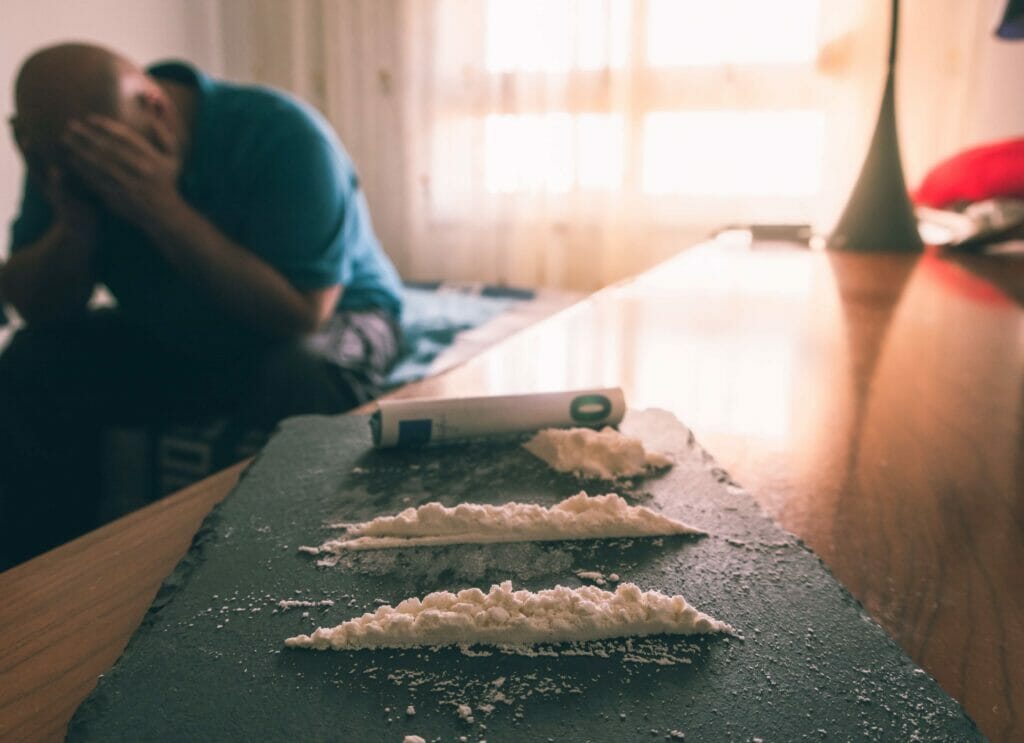Breaking Free: How To Stop Using Cocaine and Reclaim Your Life

Cocaine addiction is a complex and challenging issue that affects individuals from all walks of life. The road to recovery may seem daunting, but it is never impossible. With the right mindset, support system, and strategies, anyone can break free from cocaine addiction.
Signs You’ve Lost Control Of Your Cocaine Usage
Knowing when your substance usage has spiraled out of control is essential to getting help and taking a step toward recovery. However, that can be hard to do when you’ve become accustomed to a substance. Luckily, some signs and symptoms indicate a loss of control.
Some of the most common signs someone has lost control of their cocaine usage include:
- Needing larger amounts of cocaine to achieve the desired effects or to experience the same level of euphoria as before
- Failed attempts to quit cocaine
- Neglecting responsibilities such as missing work or school and neglecting family responsibilities
- Financial difficulties such as maxing out credit cards and engaging in risky behaviors to purchase cocaine
- Social isolation such as withdrawing from social activities and relationships that were once important
- Health issues such as insomnia, irregular heartbeats, nosebleeds
- Psychological symptoms such as heightened anxiety, paranoia, mood swings, or depression
- Strained relationships
- Losing interest in activities and hobbies that were once important
- Poor judgment that leads to risky, impulsive behavior
Steps To Take When You’re Ready To Stop Using Cocaine
Deciding to quit cocaine is a courageous and transformative choice that promises a brighter future. However, navigating the path to recovery can be overwhelming without a clear roadmap. Luckily, there are some practical steps you can and should take when you’re ready to stop using cocaine.
1. Recognize the Problem
Acknowledging that you have a problem with cocaine is the first crucial step toward recovery. Denial can be a powerful force, but it only prolongs the suffering and makes it harder to break free. Take an honest look at your life and the negative consequences cocaine has caused, both personally and professionally.
2. Get In The Right Mindset
Having the right mindset is a fundamental aspect of successfully quitting cocaine. It starts with a deep-rooted commitment and belief in overcoming addiction. Cultivating a positive and determined mindset allows you to face challenges with resilience and perseverance. It involves shifting your perspective from viewing quitting as a sacrifice to seeing it as a powerful choice that brings personal growth and a healthier future.
3. Seek Professional Help
Overcoming cocaine addiction often requires professional guidance. Reach out to a healthcare professional, counselor, or therapist experienced in addiction treatment. They can help you develop an individualized plan, provide necessary resources, and offer ongoing support throughout your recovery.
4. Participate In and Complete an Addiction Treatment Program
Participating in and completing an addiction treatment program is a pivotal step toward quitting cocaine and achieving lasting recovery. While in the treatment program, embrace a willingness to learn, grow, and fully engage in the process. Recognize that recovery is a journey that requires commitment, patience, and active participation. Trust in the expertise of the professionals guiding you and be open to trying new strategies and techniques. Maintaining a positive and proactive mindset throughout your addiction treatment program can increase your chances of long-term success in quitting cocaine.
5. Identify and Avoid Triggers
Recognize the situations, people, and emotions that trigger your cravings for cocaine. It could be certain environments, social circles, or even emotional states like stress, sadness, or boredom. By identifying these triggers, you can proactively avoid or manage them. Restructure your social circles, find healthier outlets for stress, and engage in activities that promote a positive mindset.
6. Build a Strong Support System
Surround yourself with positive, understanding individuals who support your decision to quit cocaine. Inform your loved ones about your struggle, as their support can provide a crucial anchor during challenging times. Consider joining support groups or attending meetings such as Narcotics Anonymous (NA) or Cocaine Anonymous (CA). Connecting with others who have gone through similar experiences can be immensely comforting and inspiring.
7. Implement Healthy Lifestyle Changes
Adopting a healthy lifestyle can significantly support your recovery efforts. Focus on regular exercise, a balanced diet, and sufficient sleep. Exercise releases endorphins, which can naturally boost your mood and reduce cravings. A nutritious diet can help restore your body’s balance and provide the necessary nutrients for recovery. Adequate sleep enhances mental clarity and emotional stability.
8. Learn and Practice Coping Mechanisms
Cocaine often becomes a coping mechanism for dealing with life’s challenges. Developing alternative ways to manage stress, anxiety, and other emotions is crucial. Explore healthy coping mechanisms such as meditation, deep breathing exercises, journaling, engaging in hobbies, or pursuing creative outlets. These practices can help you redirect your energy and find healthier ways to deal with life’s ups and downs.
9. Establish Boundaries and Accountability
Set clear boundaries with yourself and others regarding drug use. Avoid situations and individuals who enable or encourage your cocaine use. Surround yourself with people who respect and support your commitment to sobriety. Regularly evaluate your progress and hold yourself accountable for your actions and decisions.
10. Celebrate Milestones and Practice Self-Compassion
Recovery is a journey, and it’s important to celebrate even the most minor victories along the way. Acknowledge your progress and reward yourself for achieving milestones. At the same time, be kind to yourself during setbacks or relapses. Recovery is not always linear, and self-compassion is essential for staying motivated and resilient.
Overcoming cocaine addiction is challenging, but it is possible with determination, support, and a comprehensive recovery plan. Remember, you are not alone on this journey. Reach out for help, take one step at a time, and celebrate every triumph. The path to recovery may be difficult, but the rewards of a drug-free life are immeasurable — a life filled with renewed health, meaningful relationships, and personal fulfillment. Contact us today if you or a loved one are ready to stop using cocaine. Our treatment programs can help.
Reviewed and Assessed by
Taylor Brown, B.A.Com., CADC
Tim Coleman, M. of Ed.



